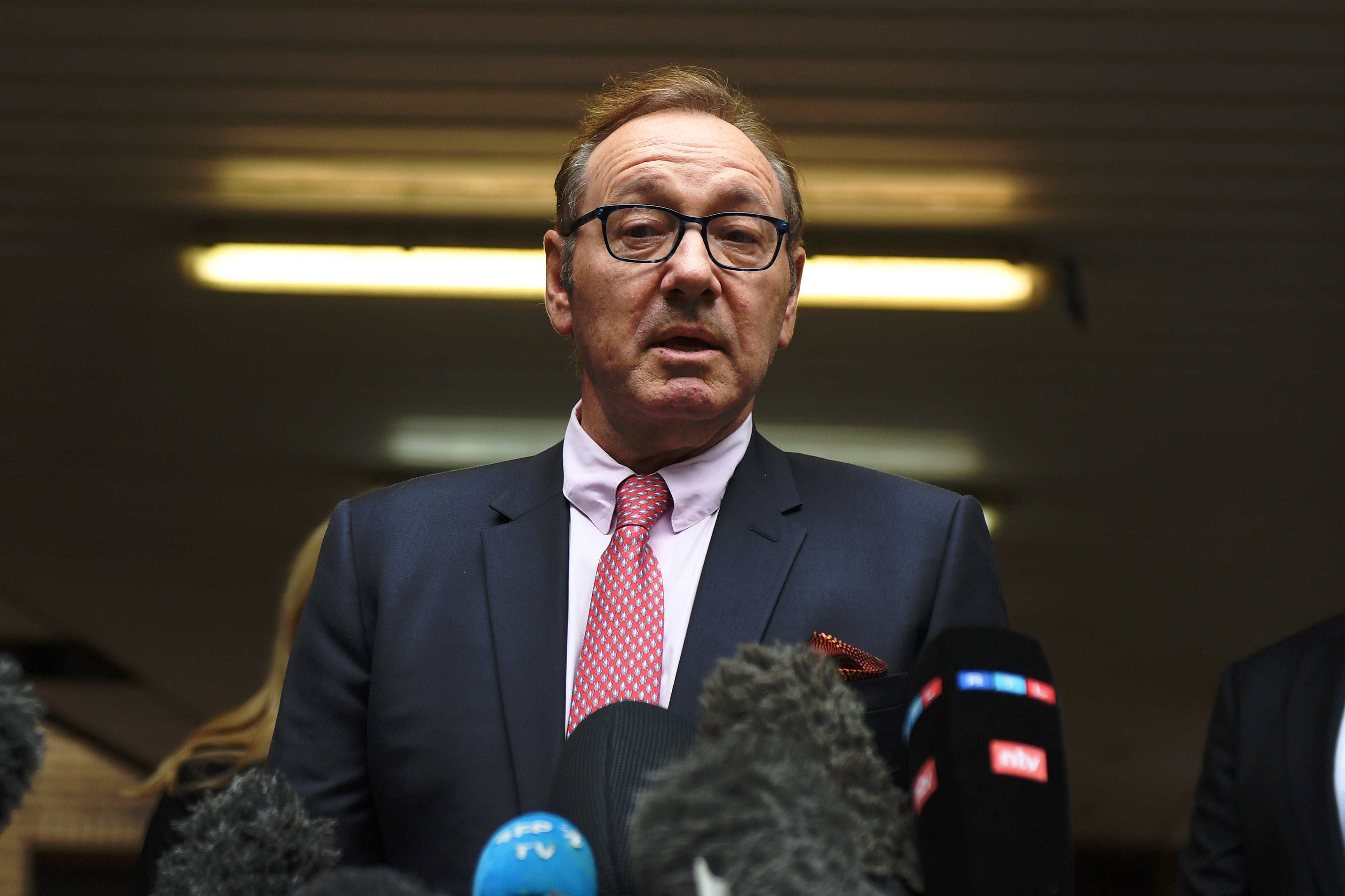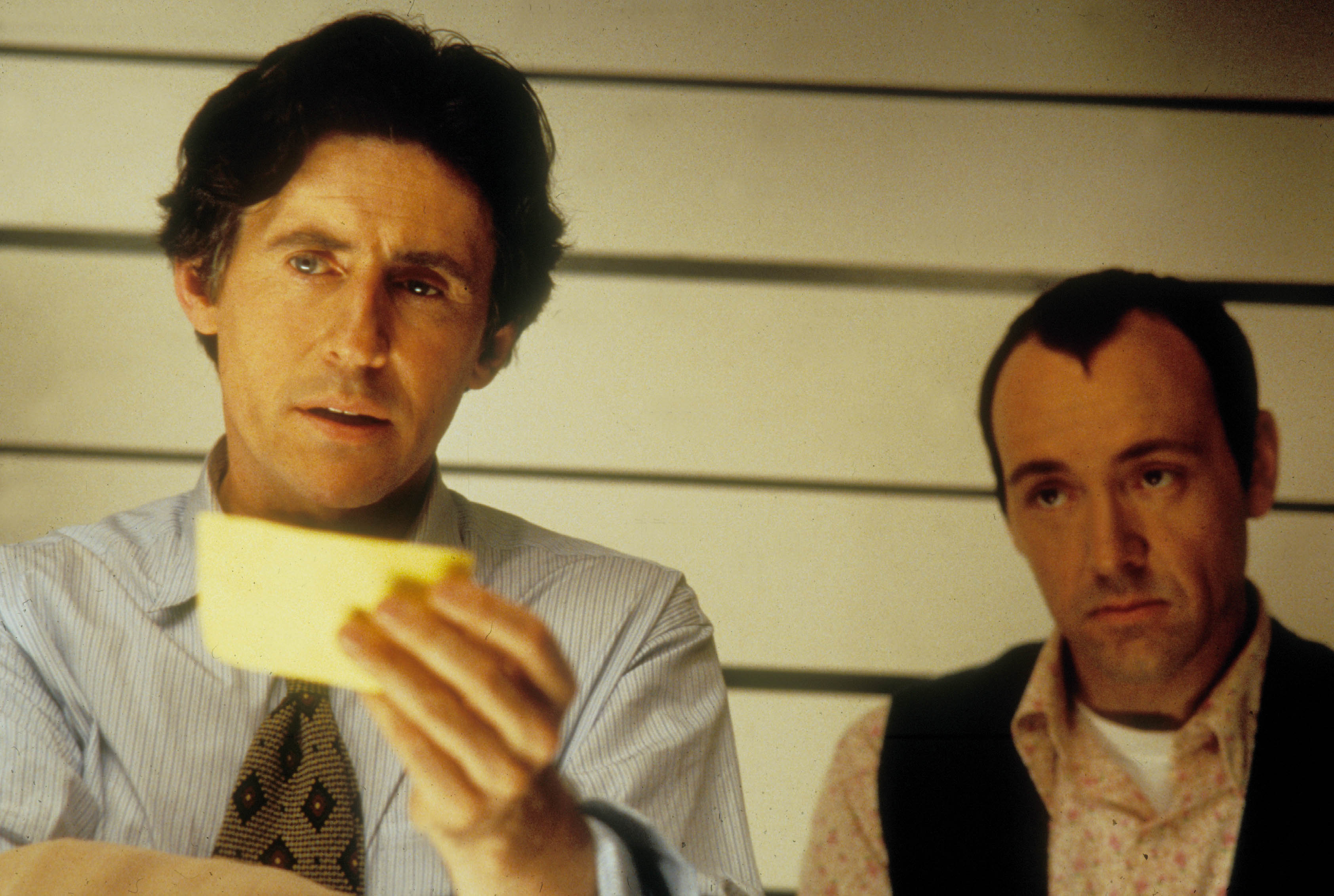How Kevin Spacey went from being one of the biggest actors on the planet to Hollywood pariah
As a new Channel 4 documentary reveals more harrowing, detailed allegations against the ‘House of Cards’ and ‘American Beauty’ actor, Nick Hilton examines a man who was cleared of nine charges of sexual assault but remains ostracised from the acting community


Your support helps us to tell the story
From reproductive rights to climate change to Big Tech, The Independent is on the ground when the story is developing. Whether it's investigating the financials of Elon Musk's pro-Trump PAC or producing our latest documentary, 'The A Word', which shines a light on the American women fighting for reproductive rights, we know how important it is to parse out the facts from the messaging.
At such a critical moment in US history, we need reporters on the ground. Your donation allows us to keep sending journalists to speak to both sides of the story.
The Independent is trusted by Americans across the entire political spectrum. And unlike many other quality news outlets, we choose not to lock Americans out of our reporting and analysis with paywalls. We believe quality journalism should be available to everyone, paid for by those who can afford it.
Your support makes all the difference.Who is Kevin Spacey? Is he the kid, growing up in southern California with an abusive father who denied the Holocaust? Is he the naive young man, appearing on stage for the first time as a spear-carrier in Henry VI, Part 1? Is he the exuberant actor racing to collect his first Oscar – Best Supporting Actor for The Usual Suspects – to a sea of cheers from the Hollywood glitterati? Or is he really, at his core, the man we see now: ostracised from the acting community, the subject of continual lawsuits and a new television exposé, Spacey Unmasked, which will ignite new conversations following further allegations of predatory behaviour?
The story of Spacey, born in 1959 in an unglamorous part of New Jersey, is in many ways a classic of American creative achievement. No famous family or industry connections, just a rapacious appetite for success. At Juilliard, the renowned performing arts school, Spacey was told that his voice sounded “like the end of a frayed rope”. In an address he gave to students in 2007, he recalled that teacher telling him: “Don’t you realise that I’m the hardest on you because I think you’re the most talented, but I also know you’re the laziest?” The path taken by Spacey in the years after graduation in 1981 would prove to be anything but lazy.
Early performances for legendary director Mike Nichols – in Heartburn (1986) and Working Girl (1988) – were followed by bigger roles, including in Glengarry Glen Ross (1992), which assembled one of the starriest casts in cinema history: Al Pacino, Jack Lemmon, Alec Baldwin, Ed Harris, Alan Arkin, Jonathan Pryce, Kevin Spacey. Now, Spacey seems like just another twinkle in that constellation, but at the time it was a huge opportunity for a 33-year-old actor with few screen credits. By 1995, though, that would all change.
It is easy to read his performance as Roger “Verbal” Kint in The Usual Suspects as a metaphor for “Spacey the man”. A seemingly innocent, vulnerable but gregarious informant turns out – spoiler alert – to be the shadowy menace at the film’s heart. The coincidence of how things ended up shouldn’t distract from what The Usual Suspects truly revealed: Spacey’s ability to inhabit the most slippery of roles. And he did it again and again: John Doe in Se7en, Hollywood Jack in LA Confidential, Lester Burnham in American Beauty. The question of who Spacey is seemed to have an answer: one of the great actors of his generation.
The last of those roles, in Sam Mendes’ American Beauty, won Spacey his second Oscar. He didn’t have the looks of Brad Pitt, the tabloid appeal of Johnny Depp, or the everyman charm of Tom Hanks. But he had something better: credibility. When, in 2003, at the height of his fame, he took the job of artistic director at London’s Old Vic, it was seen as the choice of a true artist. “I had a really great time making movies for about 10 and a half years,” he told Prospect in 2009. “Then what was I supposed to do? Do another 10 years doing the same thing? No. I wanted to do something that was bigger than me, bigger than my career, bigger than all of that – and that’s this.”

Through the Nineties and into the new century, as Spacey was becoming one of the most recognisable faces on the planet, speculation was mounting about his personal life. “There was no such thing as an out gay actor at the level of Kevin Spacey,” cinema writer Adam Vary says in the new Channel 4 documentary Spacey Unmasked. A 1997 cover story in the magazine Esquire, bearing the headline “Kevin Spacey Has a Secret”, was widely seen as outing the actor. Yet in 1999, Spacey gave an interview to the bible of American heterosexuality, Playboy, in which he denied that he was gay. “It’s not true,” he said. “It’s a lie.”
All the same, rumours continued to swirl. During his 10-year tenure at the Old Vic, Spacey’s sexuality was seen as an “open secret” within the London theatre community. The fact of this secrecy became increasingly puzzling as he exited his heartthrob era and entered comfortable middle age. Outside of the Tinseltown scrutiny, and with a new generation of openly gay actors – men like Neil Patrick Harris, Zachary Quinto and Jim Parsons – scoring big, lucrative roles, it felt like another example of Kevin Spacey keeping the real Kevin Spacey just out of sight.
On late-night talk shows, Spacey eschewed questions about his private life, preferring to wheel out a panoply of superb impressions – a note-perfect Johnny Carson or a spot-on Christopher Walken – rather than talk about himself. He was a chameleon, both personally and professionally, and everything seemed calibrated to keep that question – who is Kevin Spacey? – from being asked.
And then, at the end of October 2017, everything that Spacey had spent the best part of 60 years suppressing exploded into public sight. The actor Anthony Rapp told BuzzFeed News that Spacey had tried “to seduce” him when he was just 14. It was a bombshell revelation: Spacey was arguably the most famous person to be confronted with allegations during the #MeToo movement, and the first to face a male accuser.

Watch Apple TV+ free for 7 days
New subscribers only. £8.99/mo. after free trial. Plan auto-renews until cancelled

Watch Apple TV+ free for 7 days
New subscribers only. £8.99/mo. after free trial. Plan auto-renews until cancelled
The hurried statement he gave after Rapp’s interview will forever be seen as an example of self-immolating PR. “I have a lot of respect and admiration for Anthony Rapp,” he wrote on Twitter/X. “I’m beyond horrified to hear his story ... if I did behave then as he describes, I owe him the sincerest apology for what would have been deeply inappropriate drunken behaviour.”
Having spent three decades working on some of Hollywood’s biggest movies, Spacey, post-2017, has demonstrated the fragility of celebrity
But aside from the tone-deaf minimisation (Rapp’s allegations involved the then 46-year-old actor pinning him, as a child, down on a bed), it was the final part that stole the headlines. “I have loved and had romantic encounters with men throughout my life,” he wrote, “and I choose now to live as a gay man.” This conflation of the announcement about his sexuality with a public apology for child sexual abuse drew stinging criticism from the LGBT+ community. “Kevin Spacey has just invented something that has never existed before,” comedian Billy Eichner tweeted. “A bad time to come out.”
Rapp’s allegation was just the first of many. Actor Roberto Cavazos and filmmaker Tony Montana made substantial accusations in the immediate aftermath, which precipitated a deluge of anonymised, first-person testimonies given to broadcasters such as the BBC and CNN, and to publications from The Sun to BuzzFeed. By the end of 2017, Spacey had lost his job as Frank Underwood in the final season of Netflix’s House of Cards – a role that had won him a Golden Globe in 2015 – and been replaced, through CGI, by Christopher Plummer in Ridley Scott’s All the Money in the World. Kevin Spacey the actor, Kevin Spacey the celebrity, Kevin Spacey the generational talent – all these versions of the man had been replaced by a single, lasting image: Kevin Spacey the pariah.
Outside the easy world of red carpets and curtain calls, Spacey seemed untethered. In December 2018, he posted a video on his personal YouTube titled “Let Me Be Frank”, in which he delivered a Christmas message in character as Underwood. “We’re not done,” he announces, to camera, in the three-minute video. “No matter what anyone says... you want me back.” It was a headline-generating re-emergence into the public eye, vaguely reminiscent of OJ Simpson authoring If I Did It: Confessions of the Killer in 2007, and an exercise that Spacey repeated for two more years. He was also filmed, in 2019, singing “La Bamba” in the streets of Seville, for some reason.
In July 2023, a jury in London cleared Spacey of nine charges of sexual assault. It was the culmination of a series of events that had begun, in 2022, with the Crown Prosecution Service charging Spacey in relation to incidents that had allegedly taken place between 2005 and 2013, when Spacey was living and working in the UK. “I am humbled by the outcome today,” he told reporters outside Southwark Crown Court.

Having spent three decades working on some of Hollywood’s biggest movies, his face splashed on billboards across the world, Spacey, post-2017, has demonstrated the fragility of celebrity. A five-year hiatus was followed by a comeback in Franco Nero’s The Man Who Drew God (Italy has become a haven for disgraced artists; the National Museum of Cinema in Turin gave Spacey a controversial lifetime achievement award in January 2023), and then by appearances in B-movie fare like Control and Peter Five Eight. The question of whether Spacey is still a Box Office draw remains an open one: neither movie received a theatrical release.
His two forthcoming projects – The Bleeding Ground and The Contract – seem unlikely to break this streak. Perhaps his most watched performance of late was an extract from Timon of Athens, a play seen as an early text about “cancel culture”, delivered at an Oxford University lecture organised by right-wing commentator Douglas Murray. It received a standing ovation; a sign, perhaps, that Spacey’s appeal is now political rather than aesthetic.
Spacey Unmasked, a new Channel 4 documentary that airs over two nights this week, contains fresh allegations about the actor. One of these involves the former actor Ruari Cannon, who starred in a production of Tennessee Williams’ Sweet Bird of Youth at the Old Vic while Spacey was the theatre’s artistic director. Cannon alleges that he was groped by the actor at the press night party. “If I don’t say anything, I’ll regret it,” he told the i newspaper, as Rapp’s allegations were breaking in 2017. “And if I do, I probably don’t get to be an actor any more.”
A producer on the programme, Dorothy Byrne, told The Observer that she hoped Spacey Unmasked would initiate a “MeToo movement for men”.
Responding to this wave of allegations, Spacey appeared in a video interview with Dan Wootton – a broadcaster who was suspended by GB News, from a job that he subsequently left, following inappropriate sexual remarks directed against a female journalist on his programme. The interview was published on Wootton’s Substack.
In itself, this is a testament to how far Spacey has slipped outside the mainstream. “They want me to go on television and apologise to the world for every terrible thing I’ve ever done,” he told Wootton. “It’s not that I’m above saying I’m sorry, but as ironic as that may sound, I find it entirely self-serving and disingenuous.”
Spacey maintained this bullish tone, dismissing the new accusations made in Spacey Unmasked. “That may not have been the best decision,” he said of his past sexual behaviours. “[But] It wasn’t illegal, and nor has it ever been alleged to have been illegal.” Not laudable, sure, but not reprehensible: the sort of slippery defence that many of Spacey’s characters might confect.
If Spacey felt humbled on the steps of Southwark Crown Court last summer, the relief will be short-lived. Spacey Unmasked reveals more harrowing, detailed claims against the actor. The documentary intersperses these accounts with a portrait of Spacey’s rise and fall, often in his own words. “When you put a mask on your face and stand in front of a mirror, you suddenly don’t see yourself,” he says, in whispered archive material. “You become free.”
Spacey is a free man. He is free to make movies. He is not guilty of the charges brought against him by the CPS here in the UK. But, in another sense, Spacey is not a free man, not free to make movies, and is facing a new barrage of accusations about his conduct. It is a tension faced increasingly by artists and creatives condemned in the court of public opinion, if not in the courts themselves. It leaves them, like Schrödinger’s cat, in a sort of limbo, simultaneously free and not free.
And it leaves one fundamental question still unanswered: who, really, is Kevin Spacey?
‘Spacey Unmasked’ airs at 9pm on Channel 4 on Monday 6 May
If you’re travelling abroad and want to stream ‘Spacey Unmasked’ then you might need a VPN to unblock your streaming app. Our VPN roundup is here to help: get the best VPN deals on the market.